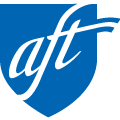
Undeniable connections
by Sheena Shukla
I’m a social worker in Chicago Public Schools, now in my fourth year serving students across the city. Currently, I work at a school where more than half of our students are in cluster programming — special education programs designed for children with moderate to severe disabilities.
The connections between education policy, funding and student services are undeniable.
The connections between education policy, funding and student services are undeniable. Our school serves a population that is 96 percent economically disadvantaged, with 57 percent of students learning English as a second language. Medicaid funding is critical in providing essential services — speech and language therapy, physical and occupational therapy, psychological services and social work — because many of our students face significant medical and developmental challenges. We also have full-time nurses to support students with conditions like seizures.
For many families, the school is more than just an educational institution — it’s their primary access point for medical and social services. Seeking care outside of school can be nearly impossible for families without transportation, financial resources or trust in external systems. Many of our parents are hesitant to leave the neighborhood due to immigration enforcement fears, making the services we provide even more essential.
This is why Medicaid funding cuts would be devastating. Many CPS students are Medicaid-eligible, and as social workers, speech therapists, psychologists and other related service providers, we rely on Medicaid reimbursements to sustain these programs. Without this funding, services would disappear, impacting not just education but also long-term public health outcomes and the independence of children with disabilities.
Beyond Medicaid, CPS also depends on Title I funding, which supports schools with high numbers of low-income students. But historically, Chicago has been underfunded at the state level, despite advocacy from the Chicago Teachers Union for a more equitable funding formula.
If Medicaid and Title I funding are slashed, the consequences will be far-reaching. Jobs will be lost, mental health services will be gutted, and children will be left without critical support.
If Medicaid and Title I funding are slashed, the consequences will be far-reaching. Jobs will be lost, mental health services will be gutted, and children will be left without critical support.
And while federal cuts threaten these services, our union is fighting for stronger legal protections. Our contract negotiations include demands for protections for our most vulnerable students — LGBTQIA+ youth, immigrant families and students of color — along with ensuring that students are receiving social work, speech therapy, occupational therapy, psychological services, physical therapy and nursing services through demanding increased staffing levels. But securing these protections requires not just union advocacy, but also broader public awareness and legislative action.
Medicaid’s role in education is often overlooked, but it funds school-based services across the country — including in conservative states. If these cuts move forward, they won’t just impact Chicago — they’ll disrupt special education nationwide. A parent in Indiana might not realize that their child’s 504 plan is at risk, but it is. The link between Medicaid and special education is undeniable, and now more than ever, we need to fight to preserve it.

Sheena Shukla is a social worker and a member of the Chicago Teachers Union.
Want to read more inspiring stories about the AFT’s members? Sign up for our e-newsletters.

